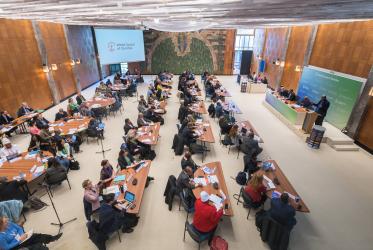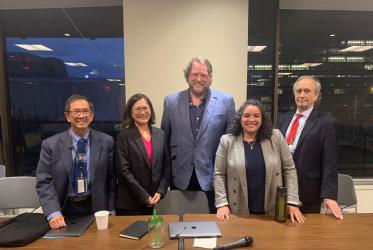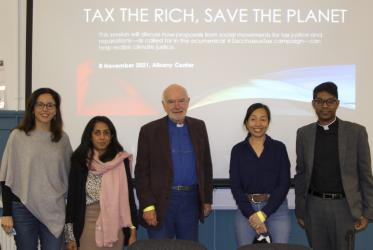Displaying 1 - 20 of 77
ACT Alliance general secretary: “equity is not negotiable”
26 September 2023
Walk the Talk
A Toolkit to Accompany the "Roadmap for Congregations, Communities and Churches for an Economy of Life and Ecological Justice"
09 November 2022
Walk the Talk
A Toolkit to Accompany the "Roadmap for Congregations, Communities and Churches for an Economy of Life and Ecological Justice"
09 November 2022
The earth is the LORD's… and the Lord is claiming it back
07 September 2022
Walk the Talk / Dalle parole ai fatti
Tabella di marcia per chiese e comunità per un’economia di vita e per la giustizia ecologica.
02 February 2022
De las palabras a la acción
Conjunto de herramientas para acompañar la «Hoja de ruta para las congregaciones, las comunidades y las iglesias para una economía de vida y una justicia ecológica»
22 December 2021
African church leaders train in leadership, diakonia and development
12 November 2021
How racism and colonialism are exacerbating impacts of climate change
29 September 2021













